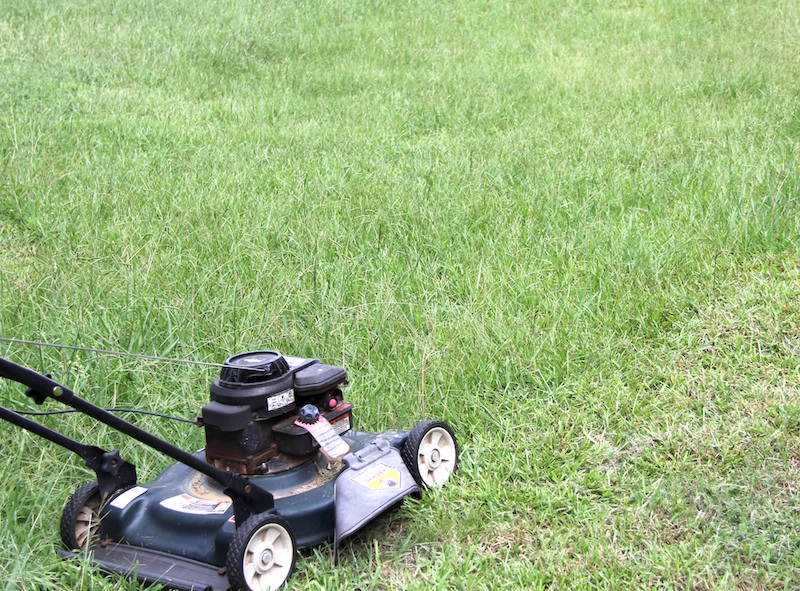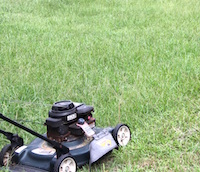Each year, thousands of people in the United States head to the emergency room because of injuries sustained while working in home landscapes.
While some of these accidents can’t be avoided, others can by simply following some quick safety guidelines surrounding household pesticides, outdoor temperatures and electricity.
Watching TV recently, I saw a commercial for a weed-killer product. I don’t remember which product it was; what impressed me was that the ad showed the homeowner donning appropriate personal protective equipment before handling the chemical. Instead of the flip-flops, shorts and T-shirt-clad lawn warrior usually depicted, the actor wore long pants, closed-toe shoes, long rubber gloves and safety glasses.
This may sound like over-kill, but keep in mind that killing is the objective of pesticides. This includes herbicides (weed killers), insecticides (insect killers) and fungicides (fungus life-cycle disrupters). They can harm you, your children, your pets and wildlife. That’s why their labels include large, bold hazard words.
The levels of hazard for homeowner pesticide products are as follows:
- DANGER-POISON – the most hazardous products carry the word and symbol for “DANGER-POISON.” This means ingesting small amounts of the product can kill.
- DANGER – pesticides with the “DANGER” word and symbol can cause irreversible eye damage and severe skin injuries.
- WARNING – pesticides labeled with the word “WARNING” are less hazardous than DANGER-labeled products, but still carry health risks.
- CAUTION – The lowest level of hazardous pesticides are labeled with the word “CAUTION.” These products can still be associated with chronic diseases like cancer.
Many pesticides — organic, inorganic, natural and synthetic — can enter the body through the eyes, skin, nose and mouth, and through breathing. Label instructions state “avoid inhalation and contact with skin, eyes and clothing.”
Some pesticides labels instruct you to wash your hands and clothing after using the product. In addition to wearing protective gear, avoid eating, smoking and chewing gum when handling pesticides. Learn more about pesticides by reading the Materials Safety Data Sheet (MSDS) found online.
Don’t get over heated
To stay safe working outside, watch for signs that the summer heat is making you whoozy. With high temperatures about 90s most afternoons in Georgia, working outside for even short periods of time can cause health problems, according to the Centers for Disease Control and Prevention.
Hundreds of people die each year from hyperthermia, which is the technical term for a temperature-related death. There are three major heat illnesses. Do not ignore the symptoms, as the illnesses can become increasingly more serious. The best advice may be to plan yard work for the coolest parts of the day, either early morning or late afternoon.
And follow these tips from University of Georgia Extension.
• Drink more water than you think you need and avoid drinking beverages that contain alcohol or large amounts of sugar. • Take frequent breaks. Try to rest in shaded areas so your body's thermostat will have a chance to recover. Stop working if you experience breathlessness or muscle soreness. • Pay attention to signs of heat-related illness, including extremely high body temperature, muscle cramps, paleness, headache, rapid pulse, dizziness, nausea, confusion or unconsciousness. • Closely watch people who are at higher risk for heat-related illness. This includes children under four years of age and adults over 65; people who are overweight; those who push themselves too hard during work or exercise; and the physically ill or those who take certain medications (i.e. for depression, insomnia, or poor circulation).Look up, look down
With all the storms we’ve had lately, you may have some broken tree limbs. Before you pull out the ladder and prepare to prune, look up and locate any overhead power lines or other hazards. Look down for potential hazards, too.
If you are installing plants, check for underground utility lines. Before you plunge shovel through sod, make sure you know what lies beneath. Cutting into cable lines, power lines, gas lines, or septic lines can be costly — to your wallet and your health. Call 811 at least two days before you plan to dig. Someone will come out and mark where underground infrastructure is located. Play it safe; call before you dig.








